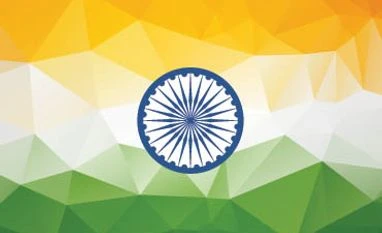Underscoring the challenges posed by the dearth of women in peacekeeping activities, India has called for increasing involvement of women in prevention and resolution of conflicts.
"There is a need to increase and institutionalise the involvement of women in conflict prevention and resolution. This requires not only normative advice but capacity building and institution building at the ground level," India's Permanent Representative to the UN Ambassador Syed Akbaruddin said here yesterday.
Speaking at the Security Council debate on 'Role of Women in Prevention and Resolution of Conflict in Africa', Akbaruddin noted the advances made in Africa in gender empowerment but said considerable challenges lie ahead given the dearth of women inpeacekeeping activities.
Women also constitute only 3% of the military and 10% of the police who are deployed by the UN in peace missions.
"These numbers reflect the enormity of the challenges that we are confronted with," Akbaruddin said, adding that despite the increased focus on the Women Peace and Security agenda, women and girls continue to be major victims.
"The issue of Women Peace and Security cannot be seen in isolation from the wider societal context involving gender and development issues," he said.
India, which is the lead troop contributor to UN peacekeeping missions, has the distinction of providing the first ever Female Formed Police Unit for the UN in Liberia.
"While there has been only a marginal increase overall in the number of women peacekeepers, the first ever Female Formed Police Unit for UN was provided by India for deployment in Liberia. The unit has been widely appreciated for its work and for setting a pioneering example," Akbaruddin said.
He said India has also contributed lady officers as Military Observers and Staff Officers in addition to deployment with the Medical Units.
The Indian envoy further noted the efforts taken by the international community to address the issues of gender equality, empowerment and development in a holistic manner.
In another significant capacity-building initiative, the New Delhi-based Centre for United Nations Peacekeeping (CUNPK) in partnership with the UN Women, is now conducting the 3rd United Nations Female Military Officers Course (UNFMOC) for 40 women military officers from 26 countries.
UN Women head Phumzile Mlambo-Ngcuka also called for greater efforts to reach the goal of allocating at least 15% of peacebuilding resources to gender equality and women's empowerment.
"Women need to be resourced so that they can do more. The commitment to allocate at least 15% of peacebuilding funds to gender equality and women's empowerment, must become a reality," Mlambo-Ngcuka told the Security Council.
"There is a need to increase and institutionalise the involvement of women in conflict prevention and resolution. This requires not only normative advice but capacity building and institution building at the ground level," India's Permanent Representative to the UN Ambassador Syed Akbaruddin said here yesterday.
Speaking at the Security Council debate on 'Role of Women in Prevention and Resolution of Conflict in Africa', Akbaruddin noted the advances made in Africa in gender empowerment but said considerable challenges lie ahead given the dearth of women inpeacekeeping activities.
More From This Section
He cited UN reports to point out that women globally constituted less than 4% of signatories to peace agreements and less than 10% of negotiators at peace tables.
Women also constitute only 3% of the military and 10% of the police who are deployed by the UN in peace missions.
"These numbers reflect the enormity of the challenges that we are confronted with," Akbaruddin said, adding that despite the increased focus on the Women Peace and Security agenda, women and girls continue to be major victims.
"The issue of Women Peace and Security cannot be seen in isolation from the wider societal context involving gender and development issues," he said.
India, which is the lead troop contributor to UN peacekeeping missions, has the distinction of providing the first ever Female Formed Police Unit for the UN in Liberia.
"While there has been only a marginal increase overall in the number of women peacekeepers, the first ever Female Formed Police Unit for UN was provided by India for deployment in Liberia. The unit has been widely appreciated for its work and for setting a pioneering example," Akbaruddin said.
He said India has also contributed lady officers as Military Observers and Staff Officers in addition to deployment with the Medical Units.
The Indian envoy further noted the efforts taken by the international community to address the issues of gender equality, empowerment and development in a holistic manner.
In another significant capacity-building initiative, the New Delhi-based Centre for United Nations Peacekeeping (CUNPK) in partnership with the UN Women, is now conducting the 3rd United Nations Female Military Officers Course (UNFMOC) for 40 women military officers from 26 countries.
UN Women head Phumzile Mlambo-Ngcuka also called for greater efforts to reach the goal of allocating at least 15% of peacebuilding resources to gender equality and women's empowerment.
"Women need to be resourced so that they can do more. The commitment to allocate at least 15% of peacebuilding funds to gender equality and women's empowerment, must become a reality," Mlambo-Ngcuka told the Security Council.
)